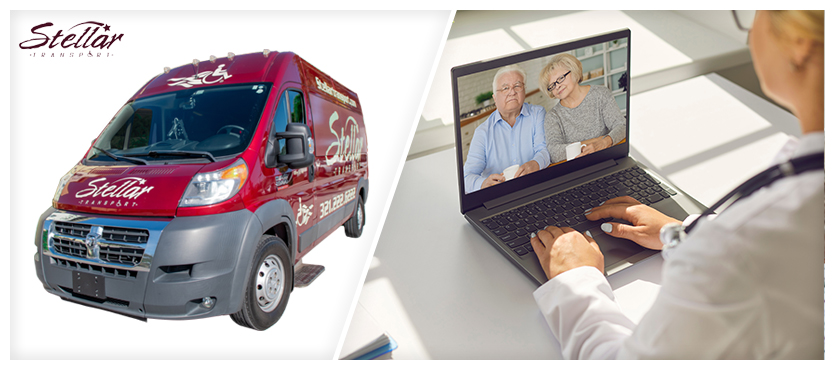While there are a variety of services available for patients in the event of an emergency, there are also many instances where a patient or senior needs medical assistance for a non-emergency occasion. Whether that is to go shopping or have a routine checkup with their doctor, many such instances do not require emergency services, but they may have medical or physical conditions that limit their ability to do simple tasks on their own. The good news is that there are more ways than ever to receive non-emergency medical help from home, so if you or a loved one needs a little bit of help, here are some tips for getting the care that you need.
Friends and Family Members
First things first, having someone nearby who can assist with various household tasks and monitor you or your loved one’s needs is the first consideration you should make. Whether that means moving in with family or asking a friend or neighbor to check up periodically, there are several you can do this. Not only can they keep an eye out and watch for medical complications, but they can help arrange transportation, grocery shopping, and more. So if you or your loved one is living alone, you may want to see who is in the area that could potentially lend a hand.
Consultations Over Phone
A key service that has been available for some time now is telephone consultations, which can be especially helpful in the absence of a reliable internet connection or device. If you or your loved one has a working telephone at home, you can consult with medical services for both emergency and non-emergency medical needs, making it a convenient way to get the information you need or ask for help and guidance.
Video Meetings
Similar to over-the-phone consultations, video meetings are a more advanced way to consult with doctors and nurses from the comfort of home, which has become increasingly more important and widespread since the COVID-19 pandemic. The biggest advantage of this option is the ability to show any medical complications and concerns you or your loved one may have in a manner that is not possible over the phone alone.
Telemedicine Apps
Another rather convenient tool at your disposal is the variety of telemedicine apps that are available on your phone or with purpose-made devices. Devices like FitBits can analyze your heartbeat and track your vitals, while others can allow a doctor to monitor your heart remotely using the device’s microphones and an internet connection. Depending on your needs, it is worth looking into what devices and applications are available that could prove extremely useful.
Mobility
Mobility around the house is vital, whether that is getting out of bed to go to the bathroom or moving from one room to another. For older patients, it could be beneficial to use a mobility aid—such as a cane, wheelchair, or walker—to help move around the house and avoid any mishaps. If you think you or your loved one would benefit from such a tool or device, consider purchasing or renting one from an online retailer that can deliver it directly to your doorstep.
Non-Emergency Medical Transportation
Another available service for patients with physical limitations is Non-Emergency Medical Transportation (NEMT) for getting around town or making scheduled checkups with the oversight of a professional during transit. This is especially helpful for patients with conditions that prevent them from riding in regular vehicles or via public transportation, and it will ensure they arrive safely and on time. If you or your loved one wishes to schedule a ride, you can book online with many services.
At Stellar Transport, we offer quality services to ensure you or your loved one arrives at your destination on time, with a variety of vehicles equipped to handle varying patient medical needs. Contact us today to book a ride or learn more about our services.

